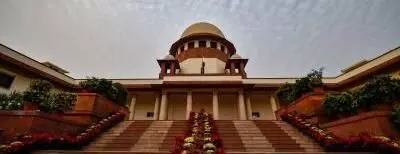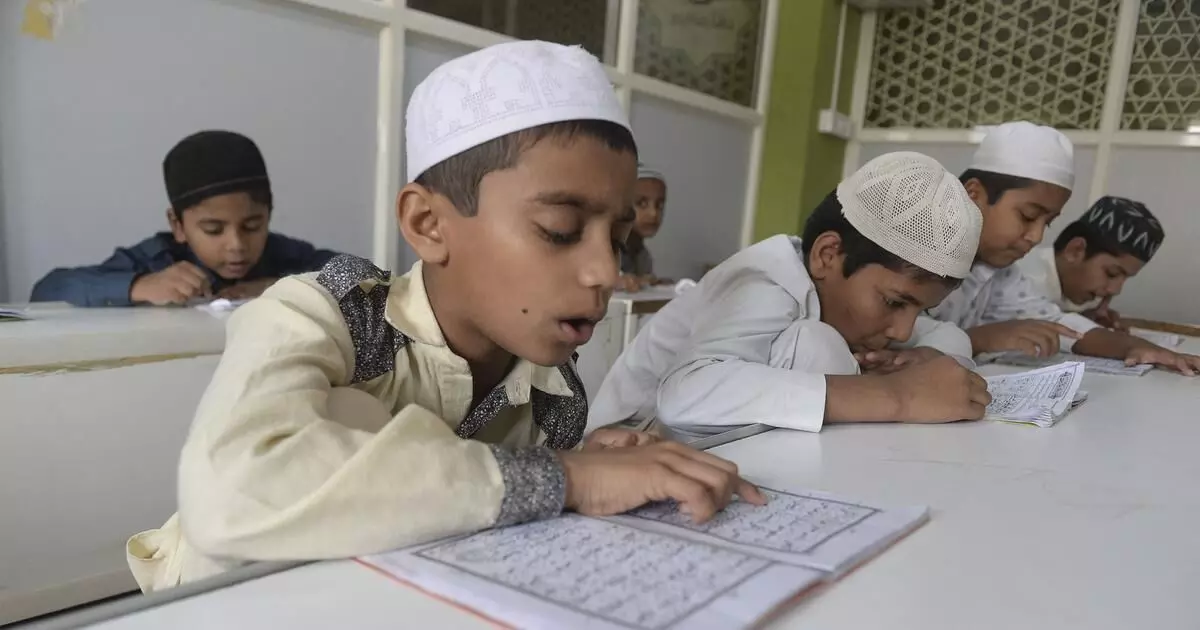
SC stays action on directive to close madrassas non-compliant with RTE Act
text_fieldsNew Delhi: The Supreme Court on Monday barred the Union Government and the States from acting upon the communications issued by the National Commission for Protection of Child Rights (NCPCR) to withdraw the recognition of madrassas which are not compliant with the Right to Education Act (RTE) 2009 and to conduct an inspection of all Madrassas.
A bench comprising Chief Justice of India DY Chandrahcud, Justice JB Pardiwala and Manoj Misra passed the interim order hearing a writ petition filed by Islamic scholars' body Jamiat Ulema-I-Hind challenging the NCPCR's action, Livelaw.in reported.
On June 07, 2024, the NCPCR through a written communication directed the Chief Secretary of the State of Uttar Pradesh to withdraw the recognition of Madrassas not complying with the RTE Act.
Later, on June 25, 2024, the NCPR wrote to the Secretary, Department of Education & Literacy, Ministry of Education, Government of India to issue directions to all States/UTs to conduct inspections of the existing Madrasas with the UDISE Code.
It also sought to withdraw the recognition and UDISE Code of Madrassa that do not comply with the norms under the RTE Act, 2009 with immediate effect. The NCPCR also requested the Union to not extend the UDISE system to Madrasas.
The NCPCR also recommended to the Union that a separate category of UDIE may be created to capture information about all Madrasas including recognised , unrecognised and unmapped.
Subsequently, on June 26, 2024, in quick compliance with the NCPCR directive, the Uttar Pradesh Chief Secretary wrote to all District Collectors to "conduct a detailed investigation of all government-aided/recognised madrassas in state that admit non-Muslim children" and to "ensure immediate admission of all children enrolled in madrasas into schools".
A similar instruction was issued by the Government of Tripura on August 28, 2024.
On July 10, 2024, the Union Government wrote to all States/UTs to take action as per the NCPCR's instruction.
The move evoked widespread protests from Muslim organisations and masses all over the country, who pointed out that while madrasas are not state-funded and are mostly run on charity, in states where they receive state aid, madrasas are the only source of education for deprived children who receive education on general subjects also there, in addition to religious teachings.
Challenging these decisions an infringement of the right of religious minorities to impart education as per Article 30 of the Constitution, the petitioner approached the Supreme Court.
While issuing notice, the Court directed that pending further orders, the communications dated 07.06.2024 and 25.06.2024 of NCPCR and the consequential communications dated 26.06.2024 of the Chief Secretary of Uttar Pradesh and communication dated 10.07.2024 issued by the Secretary, Department of Education & Literacy, Ministry of Education, Government of India and communication dated 28.08.2024 issued by the Government of Tripura shall not be acted upon.
Accepting an oral request made by advocate Jaising, the bench granted the petitioner liberty to implead all States/UTs in the petition.
The petition was filed through Advocate on Record, Fuzail Ahmed Ayyubi.
























